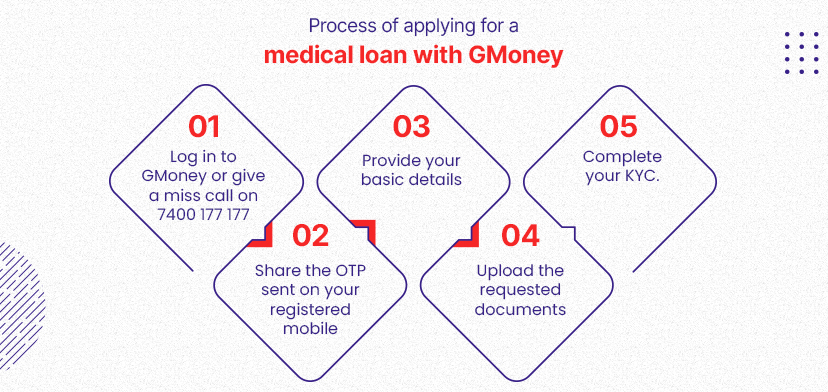Home » Expert Guide to Hernia Surgery in Mumbai: Everything You Need to Know

It’s critical to understand what to anticipate before, during, and after hernia surgery if you’re getting ready to have the treatment. Consulting with your doctor is essential if you want the procedure to be successful, comfortable, and safe. They can offer advice on the various hernia surgery, procedures, potential complications during the procedure, dangers, aftercare, and any required preparations.
In order to facilitate your operation and recovery, your doctor will also provide you with instructions and counsel. You can reduce risks and improve the likelihood of a good recovery by properly planning for your hernia surgery. Take the first step towards a speedy recovery by finding out more about what to anticipate before, during, and after hernia surgery.

Overview
Hernia occurs when an organ or tissue pushes through a weak spot in the muscle or connective tissue that keeps it in place. This can happen in various parts of the body, but it is commonly found in the abdominal wall, where it can cause the intestines or other organs to protrude. Hernias are usually observed in the groyne (inguinal), belly button (umbilical), or the area of a previous surgical incision (incisional).
In this overview of hernia surgery, we will discuss the causes and symptoms of hernia. By understanding the nature of hernias, you can take the necessary steps to prevent them or seek prompt medical attention when needed. Learn more about hernias and how hernia surgery can help in their treatment.
There are several types of hernia surgery, including
Choosing the right surgery
The best course of action for hernia surgery is determined by a number of variables, including the type and location of the hernia, the patient’s health, and their personal preferences.
Open surgery is the standard procedure for hernia repair and entails creating a sizable incision. Contrarily, laparoscopic hernia surgery employs tiny incisions and specialised tools to treat the hernia, leaving less scars and allowing for a quicker recovery.
Moreover, a robotic device is used in laparoscopic surgery known as “robotic surgery” to precisely manipulate surgical instruments.
According to Dr Gunjan Dodwani surgery is the only cure for hernia and is completely curable. Watch this video to know more.
The two most common techniques for hernia repair are open surgery and laparoscopic surgery. To access the hernia during open surgery, a surgical incision is made. The hernia is then fixed with sutures or a surgical mesh.
A number of tiny abdominal incisions are made during laparoscopic surgery, which is a minimally invasive procedure, in order to access the hernia and treat it with surgical instruments.
However, a person’s best course of action depends on the kind and extent of their hernia, which must be discussed with a medical professional. It’s also crucial to consider the advantages and disadvantages of each surgery, as well as the length of the recuperation process.

Pre-surgery appointment: You will have a pre-surgical appointment with your surgeon before your hernia surgery. Your surgeon will go over your medical history with you, do a physical exam, and go through the specifics of the surgery with you during this session. They will also answer any queries or concerns you may have while outlining the potential dangers and advantages of the procedure.
Pre-surgery tests: Your surgeon will request a number of tests before your procedure, including an ultrasound, blood tests, urine tests, chest x-rays, MRIs, and ECGs. These tests will assist your surgeon in evaluating your general health and deciding whether you are a good candidate for the procedure.
Pre-surgery diet: Your surgeon can suggest a certain pre-surgery diet to speed up your recovery and reduce the chance of complications. They might advise restricting your consumption of certain nutrients or avoiding particular foods and drinks. Before your operation, your surgeon will give you specific dietary instructions to follow.
After the anaesthetic has worn off, the surgeon will make the necessary incisions and fix the hernia, which may need adding sutures or mesh material to the area for reinforcement. The incisions will next be stitched or stapled shut. The length of the operation varies depending on the type of procedure.
After the procedure, the patient will be taken to the recovery area and attentively watched. Painkillers may be given to a patient to reduce discomfort. Once the patient is healthy enough to go home, they will be released.
After the Procedure
– Recovery at home
– Follow-up care
– Monitoring the complications
Delaying hernia surgery might result in a number of serious problems. Untreated hernias can lead to strangulation, in which the tissue becomes caught and loses blood flow, resulting in excruciating pain, nausea, and vomiting. If untreated, this ailment may be lethal. Moreover, it can result in intestinal blockage, repeated hernias, and persistent pain. So, it is imperative to have hernia surgery as soon as possible.
Moreover, delaying surgery raises the chance of infection. The tissue may become infected if the hernia becomes too wide, leading to problems including sepsis, a serious and sometimes fatal illness.
Delaying surgery may need longer, more involved, and demanding operations. Delaying medical care weakens the tissue, which makes it more difficult for the surgeon to repair the hernia and necessitates longer, more involved treatments.
Hernia surgery is normally safe and has a high success rate, making it vital to perform the procedure as soon as indicated by your doctor. This will help prevent any severe consequences and guarantee a smooth recovery.

It’s crucial to carefully weigh the benefits and disadvantages of hernia surgery before making a decision. The cost of hernia surgery can be fairly costly, and additional costs for handling any complications might also be incurred.
Depending on the precise type of surgery, the surgeon’s level of skill, and the institution where the procedure is performed, the price of hernia surgery in India can range from 35,000 to 200,000. The cost of hernia surgery in Mumbai ranges from Rs. 40,000 to Rs. 1,30,000. Hence, it is essential to discuss the expenses of the treatment and what they contain in detail with your physician.
The table below lists the costs associated with hernia surgery in several Indian cities so that you can compare them.
| City | Cost |
| New Delhi | Rs. 70,000 to Rs. 90,000 |
| Kolkata | Rs. 25,000 to Rs. 1,20,000 |
| Chennai | Rs. 50,000 to Rs. 2,70,000 |
| Bengaluru | Rs. 70,000 to Rs. 90,000 |
| Pune | Rs. 70,000 to Rs. 80,000 |
For those who need hernia surgery, GMoney offers a medical loan that enables them to pay for the procedure over time. The loan has a quick approval process and has no interest. Patients can more easily handle the cost of their treatment without accumulating considerable debt thanks to GMoney’s no-cost EMI financing for hernia surgery.
Along with the loan, GMoney offers its clients helpful tools and advice for the duration of the procedure and the recovery time. This makes sure that patients may focus on their recovery and have a great experience without being distracted by financial worries.

1. What are the signs and symptoms of a hernia?
A bulge or lump in the affected area, pain or discomfort while lifting or straining, and a sense of weight or heaviness in the affected area are all common signs of a hernia.
2. What is the cause of a hernia?
Hernias are typically caused by increased pressure in the abdomen or groin, which can be caused by bowel straining, heavy lifting, pregnancy, or obesity.
3. How is a hernia diagnosed?
A hernia is often diagnosed via physical examination and imaging testing such as an ultrasound or CT scan.
4. What are the risks of a hernia?
The risks of having a hernia include pain and discomfort, infection, and intestine obstruction. In rare cases, hernias can cause life-threatening complications such as strangulation or incarceration of the intestine.
5. How long does it take to recover from hernia surgery?
The amount of time it takes to recover from hernia surgery depends on the type of hernia and the patient’s overall condition. Hernia surgery might take anywhere from 2-4 weeks to fully recover.
6. Am I qualified for GMoney’s no-cost EMI?
Any individual who is a resident of India and is between the ages of 21 and 58 is eligible for GMoney’s no-cost EMI.
7. Are there any processing fees for GMoney’s no-cost EMI?
No, GMoney does not charge processing fees. You can apply for the loan online with no charges or penalties.
8. How long does GMoney’s no-cost EMI last?
GMoney has a flexible payment schedule. You can choose a loan length ranging from 3 to 18 months based on your ability to pay.
9. Can children have hernias?
It’s not at all rare. Umbilical hernias at birth are, in fact, quite common. Most will go away on their own. Inguinal hernias in newborns and infants are frequently seen. Those don’t go away. Happily, the repair of an infant hernia is quite simple compared to those in adults.
10. What is minimally invasive hernia repair?
Laparoscopic, or minimally invasive, procedures use multiple small incisions no more than 1 centimetre in length to access the hernia. The abdomen is then inflated with carbon dioxide to provide room for the surgeon to work, and the hernia is repaired with a small, flexible device called a laparoscope.
11. Can hernias cause death?
Yes, in some cases. A strangulated hernia can occur when the bowel becomes trapped in the hernia, cutting off the blood supply to the affected tissue. If the trapped tissue dies and intestinal contents leak into the abdominal cavity, resulting in peritonitis, it can be fatal unless it is treated quickly with surgery and antibiotics.
An important medical procedure that has the potential to save a person’s life is hernia surgery. Before the surgery, it is crucial to go over the risks and potential consequences with your doctor and to have a thorough idea of the overall cost of the care. You may handle the cost of the procedure and focus on your recovery with the aid of a medical loan from GMoney.
Disclaimer: THIS WEBSITE DOES NOT PROVIDE MEDICAL ADVICE.
Follow us
Reach us
Mumbai HO
GMoney Pvt. Ltd.
315, 215 Atrium,
Next to Courtyard by Marriott,,
A.K. Road, Andheri East,
Mumbai - 400093
Ph : +91 86570 00105, +91 72089 60444
Quick Links
Bengaluru
GMoney Technologies Pvt. Ltd.
Oyo Work Spaces, Umiya Emporium,
Opposite Forum Mall, Hosur Rd,
Koramangala, Bengaluru,
Karnataka 560029
Ph : +91 89717 34815
Delhi
GMoney Technologies Pvt. Ltd.
Berry Co Works, 1E/3,
Jhandewalan extension,
Next to jhandewalan metro station
gate no. 2 Barakhambha Road,
New Delhi, Delhi 110001
Ph : +91 97116 26832
Pune
GMoney Technologies Pvt. Ltd.
91 Spring Board, Sky Loft,
Creaticity Mall, Off, Airport Rd,
opposite Golf Course, Shastrinagar,
Yerawada, Pune,
Maharashtra 411006
Ph : +91 84250 28758
Chandigarh
GMoney Technologies Pvt. Ltd.
SCO no. 292,
First Floor, Sector 35D,
Chandigarh
Ph : +91 84279 82012
Jaipur
GMoney Pvt. Ltd.
CODESKK Civil Tower,121 122,
Pandit TN Mishra Marg,
Santhosh Nagar, Nirman Nagar,
Jaipur – 302019
Ahmedabad
GMoney Pvt. Ltd.
22nd Floor, B Block,
Westgate By True Value,
Nr. YMCA Club, SG Highway,
Ahmedabad – 380051
Hyderabad
GMoney Pvt. Ltd.
Dwaraka Pride,
Plot no. 4/1, Survey No. 64,
Huda Techno Enclave, Madhapur,
Hyderabad (Telangana) – 500081
Chennai
GMoney Pvt. Ltd.
DBS Business Center, 31A,
Cathedral Garden Rd, Badrikari, Tirumurthy Nagar, Nungambakkam, Chennai, Tamil
Nadu – 600 034
Mumbai HO
GMoney Pvt. Ltd.
315, 215 Atrium,
Next to Courtyard by Marriott,,
A.K. Road, Andheri East,
Mumbai - 400093
Ph : +91 86570 00105, +91 72089 60444
Bengaluru
GMoney Pvt. Ltd.
3rd floor, Ranka Junction,
AH45, Krishna Reddy Industrial Estate,
Dooravani Nagar,
Bengaluru Karnataka - 560016
Ph : +91 72089 60444
Pune
GMoney Pvt. Ltd.
91 Spring Board, Sky Loft,
Creaticity Mall, Airport Rd,
Opp. Golf Course, Shastrinagar,
Yerawada, Pune,
Maharashtra - 411006
Ph : +91 72089 60444
Delhi
GMoney Pvt. Ltd.
Berry Co Works, 1E/3,
Jhandewalan extension,
Gate no. 2 Barakhambha Road,
New Delhi, Delhi - 110001
Ph :
+91 72089 60444
Chandigarh
GMoney Pvt. Ltd.
SCO No. 292,
First Floor, Sector 35D,
Chandigarh - 160022
Ph : +91 72089 60444
Hyderabad
GMoney Pvt. Ltd.
Dwaraka Pride,
Plot no. 4/1, Survey No. 64,
Huda Techno Enclave, Madhapur,
Hyderabad (Telangana) - 500081
Jaipur
GMoney Pvt. Ltd.
CODESKK Civil Tower,121 122,
Pandit TN Mishra Marg,
Santhosh Nagar, Nirman Nagar,
Jaipur - 302019
Chennai
GMoney Pvt. Ltd.
DBS Business Center, 31A,
Cathedral Garden Rd, Badrikari,
Tirumurthy Nagar,Nungambakkam, Chennai,
Tamil
Nadu - 600 034
Pune | Mumbai | New Delhi | Kolkata | Chennai | Navi Mumbai| Bengaluru | Ahmedabad | Nagpur | Hyderabad | Jaipur | Lucknow | Bhopal | Bhubaneswar | Nashik | Indore | Ghaziabad | Kanpur | Amritsar | Vasai | Noida | Gurugram | Chandigarh | Ranchi | Cuttack | Thane | Kalyan | Jalandhar | Kolhapur | Visakhapatnam | Chakan| Greater Noida | Wagholi | Raipur | Panvel | Belgaum | Mohali | Bhiwandi | Talegaon | Coimbatore | Palghar | Mumbra | Sangli | Surat | Durgapur | Ludhiana | Kochi | Agra | Ahmednagar | Ajmer | Akola | Aurangabad | Baroda | Beed | Rewari | Patiala | Vellore | Ranjangaon | Nanded | Nellore | Panipat | Panjim | Madurai | Mysore | Mangalore | Korba | Mathura | Kalaburagi | Jalgaon | Kharar | Guwahati | Kollam | Jamshedpur | Gwalior | Saswad | Solapur | Varanasi | Salem | Sambalpur | Jodhpur | Hubli | Panchkula | Faridabad | Amravati | Ayodhya | Badlapur | Dehradun | Parbhani | Ujjain | Udaipur | Tiruchirappalli | Srinagar | Shimla | Secunderabad | Ratnagiri | Pandharpur | Ananthapuram | Buldhana | Hadapsar | Baramati | Chittoor | Darjeeling | Dhule | Fatehpur | Gandhinagar | Haridwar | Gorakhpur | Jhansi | Kanchipuram | Kartarpur | Kurukshetra | Pondicherry | Prayagraj | Bharuch | Bhusawal | Bathinda | Pathankot | Nandurbar | Niphad | Kolar | Ambala | Kota | Pendurthi | Jabalpur | Palwal | Bhilai | Bhiwani | Bilaspur | Patna | Rohtak | Phagwara | Malegaon | Vijayawada | Bikaner | Chiplun | Darbhanga | Roorkee | Bhor | Rajahmundry | Margao | Alwar | Dhanbad | Bulandshahr | Aluva | Mulshi | Davanagere | Kapurthala | Anantapur | Loni | Latur | Gondia | Chhindwara | Chandrapur | Dharmapuri-TN | Faridkot | Dharwad | Daund | Chaksu | Bareilly | Kakinada | Haldwani | Doddaballapur | Dindori-MH | Bagru | Kudus | Kozhikode | Gurdaspur | Bokaro | Berhampur | Batala | Barrackpore | Ramgarh | Meerut | Bassi | Dera Bassi | Howrah | Karjat Raigarh | Thiruvananthapuram | Bheemunipatnam | Ambegoan | Allahabad | Aligarh | Alappuzha | Tirupathi | Thoppumpady | Srikakulam | Siliguri | Rourkela | Mirzapur | Gadag | Bellary | Tumkur | Sonipat | Hoshangabad | Junnar | Jalna | Hisar | Karnal | Kottayam | Muzzafarnagar | Ramnagara | Thrissur | Bahadurgarh | Balasore | Baraut | Dhar | Ernakulam | Gadhinglaj | Chikodi | Vaniyambadi | Kamothe |